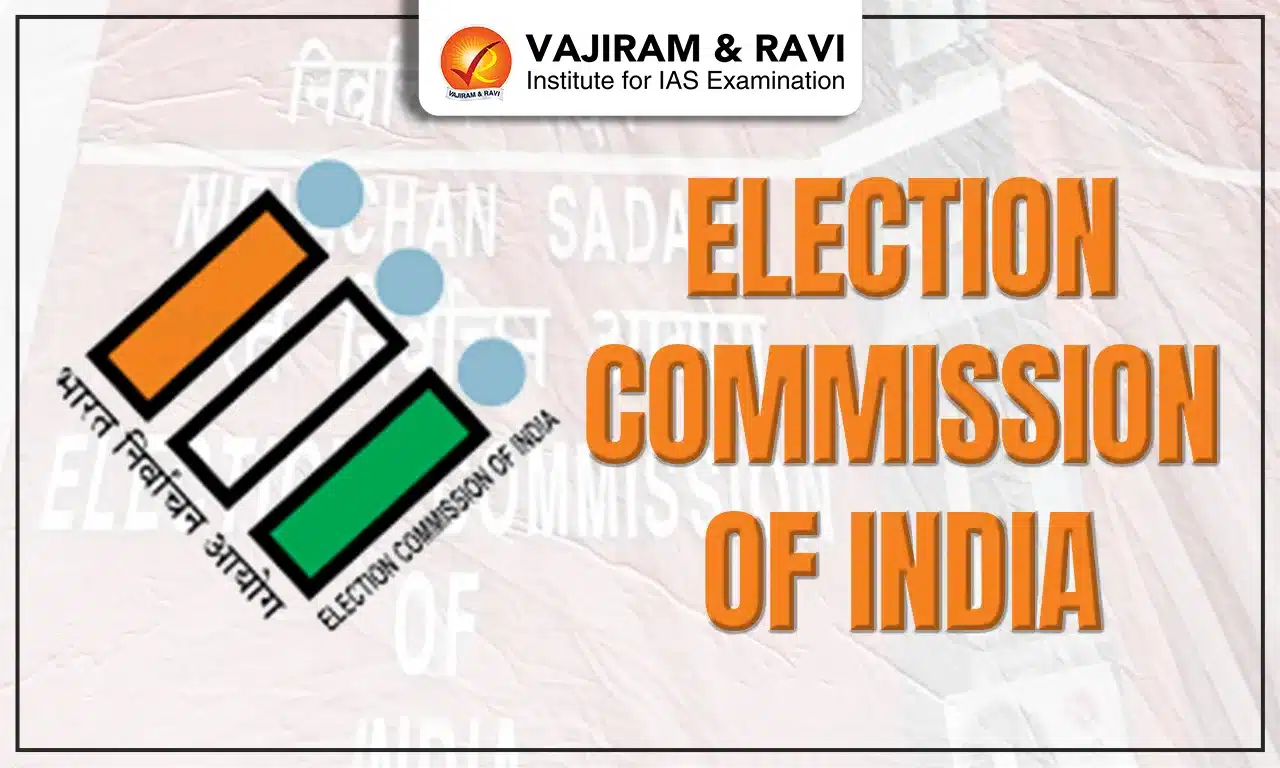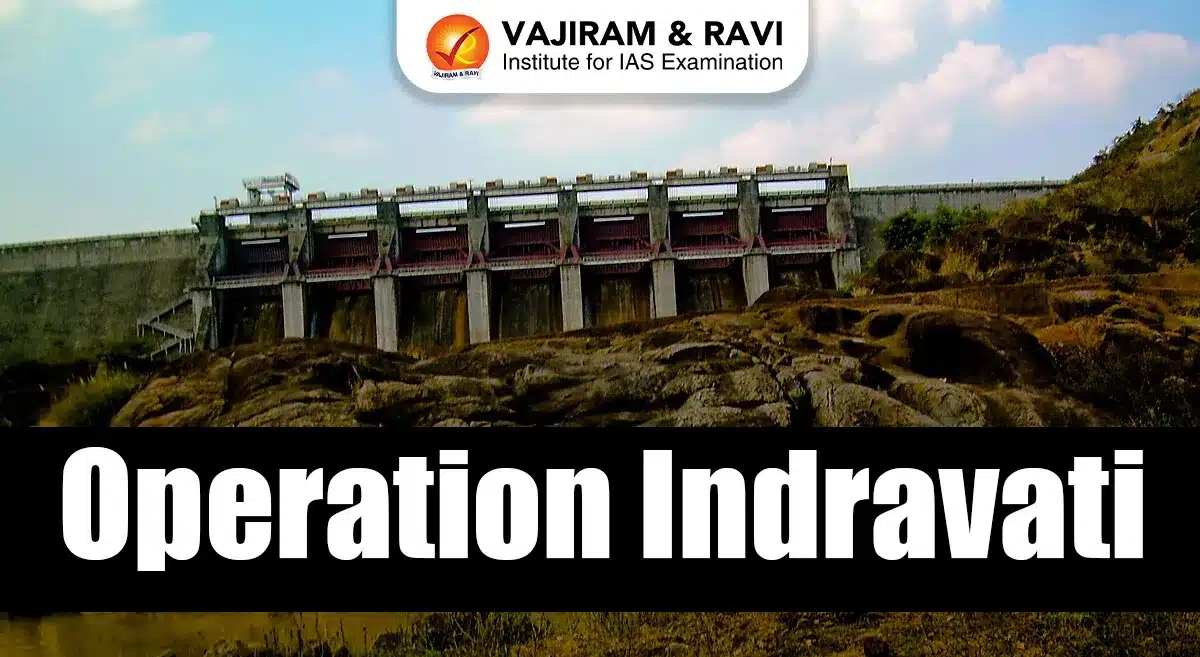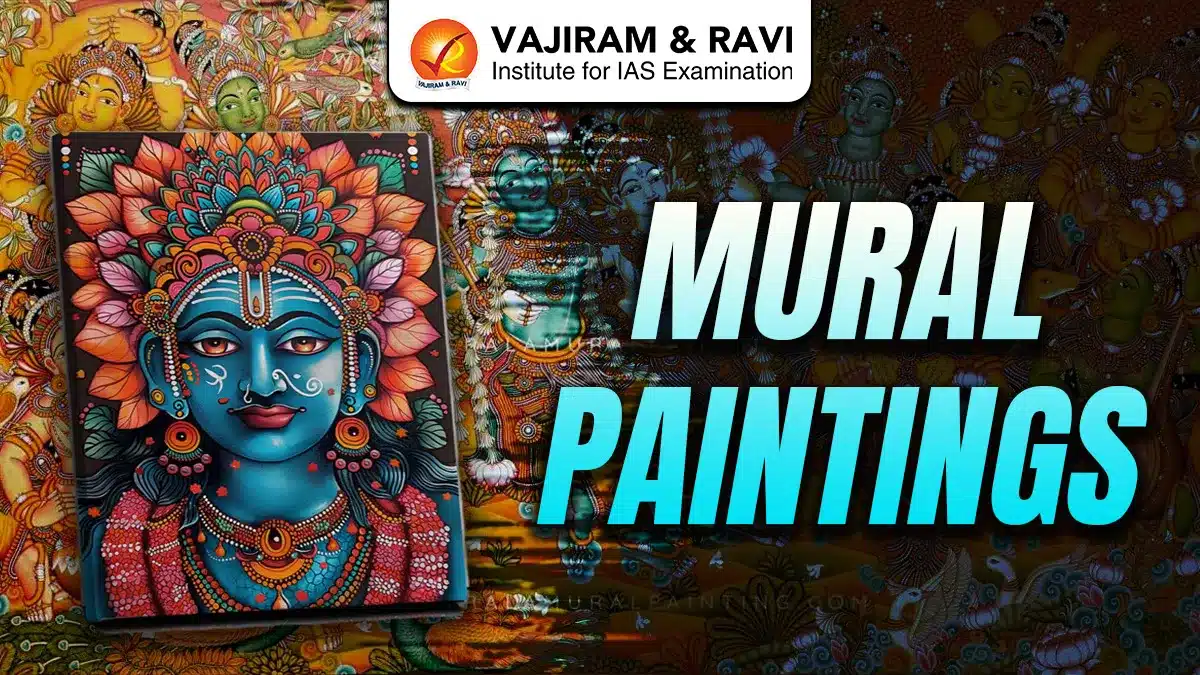The Election Commission of India (ECI) is an autonomous constitutional authority responsible for administering elections to the Parliament, state legislatures, and the offices of the President and Vice-President of India. Established on 25 January 1950, the Commission ensures that elections are conducted freely, fairly, and transparently across the country. Its work upholds the democratic principle of universal adult suffrage guaranteed by the Constitution under Article 326. The ECI’s independence and credibility are vital to maintaining India’s democratic integrity.
Election Commission of India
The Election Commission of India derives its powers and responsibilities from Article 324 of the Indian Constitution. It is a constitutional body, independent of government influence, tasked with supervising the entire electoral process. Initially a single-member body, it became a multi-member Commission in 1993, consisting of the Chief Election Commissioner (CEC) and two Election Commissioners. The ECI manages over 97 crore registered voters (as per 2024 data) and conducts elections in more than 10 lakh polling stations nationwide.
Election Commission of India Structure
The Election Commission of India (ECI) is a constitutional body established under Article 324 of the Indian Constitution. It is a multi-member commission responsible for supervising elections to Parliament, State Legislatures, and the offices of the President and Vice-President. Originally, it had only one Chief Election Commissioner (CEC), but since October 1993, it became a three-member body. The Commission operates as a collegiate body, ensuring collective decision-making. It has a permanent secretariat at Nirvachan Sadan, New Delhi, and functions independently of government control. Its structure ensures autonomy, impartiality, and accountability in the electoral process as mandated by the Constitution.
Election Commission of India Composition
The ECI comprises the Chief Election Commissioner (CEC) and two Election Commissioners (ECs), as provided under Article 324(2) of the Constitution. The President of India determines the number of Commissioners from time to time. All three members enjoy equal powers, salaries, and status, and decisions are taken collectively through majority vote. The Chief Election Commissioner acts as the head of the institution, ensuring smooth coordination. The administrative staff is drawn from central and state government services. This composition aims to maintain checks and balances within the Commission, upholding transparency and non-partisanship in the conduct of elections.
As of 2025 the members of Election Commission of India are:
- Chief Election Commissioner (CEC): Shri Gyanesh Kumar
- Election Commissioners: Dr. Sukhbir Singh Sandhu and Dr. Vivek Joshi
Chief Election Commissioner (CEC)
The Chief Election Commissioner is the head of the Election Commission of India and ensures the independence and integrity of the electoral process.
- The CEC is appointed by the President of India under Article 324(2) of the Constitution.
- The CEC’s role is crucial in enforcing the Model Code of Conduct (MCC), supervising voter rolls, and ensuring impartial conduct of elections.
- The Supreme Court in T.N. Seshan vs Union of India (1995) upheld that all Election Commissioners are equal in power and status, ensuring collective functioning.
- The CEC is considered the guardian of India’s electoral democracy, accountable only to Parliament and the Constitution.
Election Commissioners Appointment
The Chief Election Commissioner and other Election Commissioners are appointed by the President of India under Article 324(2). Though the Constitution does not specify a detailed procedure, the appointment is made on the advice of the Council of Ministers. However, several legal experts and the Supreme Court (in March 2023) have recommended a collegium system involving the Prime Minister, Leader of Opposition, and Chief Justice of India to ensure transparency until Parliament enacts law. Their appointment order is issued by the President, and their terms, conditions, and service benefits are defined under the Election Commission (Conditions of Service) Rules, 1992.
Election Commissioners Tenure
Under the Election Commission (Conditions of Service of Election Commissioners and Transaction of Business) Act, 1991, each Election Commissioner, including the CEC, holds office for six years or until attaining the age of 65 years, whichever is earlier. This fixed tenure provides functional independence and stability. Their salaries and allowances are equivalent to those of Judges of the Supreme Court, ensuring parity with other high constitutional offices. Article 324(5) protects their tenure by stating that their service cannot be varied to their disadvantage after appointment. Such constitutional safeguards ensure autonomy and prevent arbitrary interference by the executive branch.
Election Commissioners Resignation and Removal
Election Commissioners may resign from office by submitting a written resignation to the President of India. However, the Chief Election Commissioner (CEC) enjoys stronger constitutional protection. Under Article 324(5), the CEC can be removed only in the same manner and on the same grounds as a Judge of the Supreme Court, that is, by a special majority of both Houses of Parliament on proven misbehavior or incapacity. Other Election Commissioners can be removed only on the recommendation of the CEC. This system ensures the Commission’s independence, preventing misuse of executive power and preserving the institution’s credibility and neutrality in elections.
Election Commission of India Powers
The Commission enjoys wide-ranging powers to ensure the integrity, neutrality, and transparency of the electoral process across India.Key Powers:
- Administrative Powers: Control over election schedules, polling arrangements, and the deployment of polling staff.
- Advisory Powers: Advises the President and Governors on matters related to disqualification of members.
- Quasi-Judicial Powers: Decides disputes regarding political party recognition and symbols under the Election Symbols (Reservation and Allotment) Order, 1968.
- Regulatory Powers: Enforces the Model Code of Conduct (MCC) and monitors election expenditure.
- Disciplinary Powers: Can direct transfers or suspension of officials for election-related misconduct.
Election Commission of India Functions
The ECI performs multiple functions to ensure free, fair, and periodic elections in accordance with democratic principles. Major Functions:
- Conduct of Elections: Supervises, directs, and controls elections to Parliament, State Legislatures, and high offices.
- Delimitation: The Election Commission of India (ECI) does not directly have delimitation powers; instead, it oversees the process, which is conducted by a separate, temporary Delimitation Commission established by the Central Government.
- Electoral Rolls: Prepares, revises, and updates voter lists through continuous revision and SIR (Special Intensive Revision).
- Registration of Political Parties: Recognizes parties and allots election symbols.
- Voter Education: Promotes awareness under the Systematic Voters’ Education and Electoral Participation (SVEEP) program.
- Monitoring Expenditure: Ensures transparency through election expenditure audits and monitoring teams.
Election Commission of India Constitutional Provisions
The Election Commission of India is established under Article 324 of the Constitution to ensure free and fair elections in India. Key Constitutional Provisions:
- Article 324(1): Grants the ECI the power to conduct elections to Parliament, State Legislatures, and the offices of President and Vice-President.
- Article 324(2): Empowers the President to appoint the Chief Election Commissioner and other Election Commissioners.
- Article 324(5): Provides protection to the tenure and service conditions of the CEC, ensuring independence.
- These provisions ensure the ECI acts as an autonomous constitutional authority, not subordinate to any executive or legislature.
Election Commission of India Legal Safeguards
The legal framework guarantees the Commission’s independence and shields it from executive or political influence during elections. Major Legal Provisions:
- Article 324(5): Protects the CEC’s tenure and prevents arbitrary removal.
- Election Commission (Conditions of Service of Election Commissioners and Transaction of Business) Act, 1991: Defines tenure, salaries, and conditions of service.
- Representation of the People Acts (1950 & 1951): Provide detailed election procedures, voter eligibility, and dispute resolution.
- Indian Penal Code & Conduct of Election Rules, 1961: Penalize malpractices like bribery, booth capturing, and false nominations.
- These legal safeguards collectively ensure institutional autonomy and operational transparency.
Election Commission of India Government Policies
To strengthen electoral integrity, several policy measures and reforms have been introduced by the government in consultation with the ECI. Key Policies and Their Impact:
- Electoral Bond Scheme (2018): Introduced to improve transparency in political funding, though under judicial scrutiny.
- One Nation, One Election (Proposal): Aims to synchronize national and state elections, reducing expenditure and administrative burden.
- Voter ID-Aadhaar Linking Drive (Proposal): Ensures cleaner voter rolls by removing duplicate entries.
- Remote Voting Prototype (Proposal): Designed to allow migrant workers to vote from other locations.
- Awareness Campaigns (SVEEP): Promotes voter education and participation, increasing turnout rates to over 67% in 2019 Lok Sabha polls.
Election Commission of India Independence
The independence of the Election Commission is fundamental to Indian democracy. The Constitution grants it autonomy, but its accountability mechanisms ensure transparency.
Accountability Measures:
- Judicial review of Commission decisions.
- Parliamentary oversight through questions and debates.
- Media transparency and publication of detailed election reports.
Measures Ensuring Independence:
- Fixed Tenure: CEC and ECs hold office for six years or till the age of 65.
- Security of Tenure: CEC can be removed only by parliamentary impeachment similar to a Supreme Court judge.
- Equal Status: All commissioners enjoy equal decision-making power.
- Financial Autonomy: ECI’s budget is charged on the Consolidated Fund of India, ensuring executive non-interference.
- Neutrality in Appointments: Recent Supreme Court directives advocate a collegium-based selection process for transparency.
Election Commission of India Case Laws
Several judicial decisions have strengthened the constitutional position and functioning of the ECI:
- S. Subramaniam Balaji v. State of Tamil Nadu (2013): Directed the ECI to enforce the Model Code of Conduct more stringently.
- Union of India v. Association for Democratic Reforms (2002): Mandated disclosure of candidates’ criminal, educational, and financial backgrounds.
- PUCL v. Union of India (2003): Recognized the Right to Vote as part of the freedom of expression under Article 19(1)(a).
- A.C. Jose v. Sivan Pillai (1984): Affirmed that the ECI has plenary powers under Article 324 to ensure free elections.
- ADR vs. Election Commission (2024): The Supreme Court emphasized transparency in voter list revisions under SIR, ensuring uniform procedures across states.
Election Commission of India Challenges
Despite its achievements, the ECI faces several operational and institutional challenges:
- Political Pressure and Allegations of Bias: Increasing accusations of partisanship affect its credibility.
- Voter Exclusion: Issues in electoral roll verification, especially during Special Intensive Revisions (SIR), lead to disenfranchisement.
- Election Expenditure: Unchecked campaign spending and unaccounted political donations undermine transparency.
- Fake News and Electoral Manipulation: Social media misinformation impacts voter behavior.
- Digital Divide: Limited accessibility of digital services in rural areas hinders full participation.
Way Forward:
- Establish a collegium system for appointment of Election Commissioners.
- Provide statutory backing for the Model Code of Conduct.
- Expand voter education programs in marginalized communities.
- Enhance cyber resilience through AI-based monitoring.
- Strengthen coordination with social media platforms to curb misinformation.
Election Commission of India Technology Integration
The ECI has significantly integrated technology into election management, ensuring faster, more secure, and transparent processes. Key Digital Initiatives:
- EVMs and VVPATs: Ensure tamper-proof voting and verifiable paper trails.
- cVIGIL App: Allows citizens to report Model Code violations in real time.
- ERONet and NVSP Portal: Facilitate online voter registration and roll management.
- Suvidha and Samadhan Portals: Streamline candidate permissions and grievance redressal.
- Garuda App: Enables Booth Level Officers (BLOs) to conduct door-to-door verification digitally.
Election Commission of India Significance
The Election Commission acts as the foundation of India’s democracy, ensuring the people’s mandate is exercised freely, fairly, and periodically.
- Democratic Legitimacy: Upholds citizens’ right to vote under Article 326, maintaining public confidence in electoral outcomes.
- Institutional Stability: Ensures smooth transitions of power without conflict, protecting the essence of parliamentary democracy.
- Inclusivity: Implements initiatives like SVEEP and Accessible Elections Project to include marginalized groups, PwDs, and senior citizens.
- Technological Reforms: Adoption of EVMs, VVPAT, and digital voter roll systems enhances transparency and reduces human error.
- Global Recognition: India’s ECI is often cited as a model for electoral management by international organizations like the UNDP and International IDEA.
Election Commission of India UPSC
The Election Commission of India (ECI) has announced Phase 2 of its nationwide “Special Intensive Revision” (SIR) of electoral rolls, covering 12 states and Union Territories from November 4, 2025.
- The exercise will affect around 51 crore electors, aiming for a final roll publication on February 7, 2026.
- States involved include major poll-bound regions such as Tamil Nadu, Kerala, West Bengal and Puducherry.
- The ECI clarified that Aadhaar card and 13 other documents may be used for identity proof, though concerns over potential disenfranchisement have been raised by opposition parties.
- The revision follows the earlier SIR pilot in Bihar, where the ECI reported zero appeals or complaints relating to deletions.
- Some states have questioned the timeline and scope of the exercise, arguing that it should not proceed in a short span of 2-3 months given migration and administrative challenges.
Last updated on January, 2026
→ Check out the latest UPSC Syllabus 2026 here.
→ Join Vajiram & Ravi’s Interview Guidance Programme for expert help to crack your final UPSC stage.
→ UPSC Mains Result 2025 is now out.
→ UPSC Notification 2026 Postponed for CSE & IFS which was scheduled to be released on 14 January 2026.
→ UPSC Calendar 2026 has been released.
→ UPSC Prelims 2026 will be conducted on 24th May, 2026 & UPSC Mains 2026 will be conducted on 21st August 2026.
→ The UPSC Selection Process is of 3 stages-Prelims, Mains and Interview.
→ Prepare effectively with Vajiram & Ravi’s UPSC Prelims Test Series 2026 featuring full-length mock tests, detailed solutions, and performance analysis.
→ Enroll in Vajiram & Ravi’s UPSC Mains Test Series 2026 for structured answer writing practice, expert evaluation, and exam-oriented feedback.
→ Join Vajiram & Ravi’s Best UPSC Mentorship Program for personalized guidance, strategy planning, and one-to-one support from experienced mentors.
→ UPSC Result 2024 is released with latest UPSC Marksheet 2024. Check Now!
→ UPSC Toppers List 2024 is released now. Shakti Dubey is UPSC AIR 1 2024 Topper.
→ Also check Best UPSC Coaching in India
Election Commission of India FAQs
Q1. What is the Election Commission of India? +
Q2. Who appoints the Chief Election Commissioner? +
Q3. What is the tenure of Election Commissioners? +
Q4. What are the major powers of the Election Commission of India? +
Q5. How does the Election Commission of India ensure free and fair elections? +

















